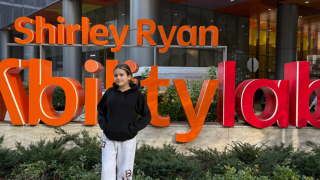Body
Children with disabilities are at a higher risk of abuse and neglect than their peers. This can include physical, emotional, or sexual abuse, as well as neglect of basic needs. Families, caregivers, and professionals need to be aware of the signs and know how to respond. Abuse can happen in any setting—home, school, or care facilities—and may be harder to detect in children who have communication challenges.
Key Points:
- Children with disabilities may be more vulnerable due to dependence on others, communication barriers, or social isolation.
- Abuse can take many forms: physical harm, emotional mistreatment, sexual abuse, or neglect.
- Caregivers and professionals should learn to recognize signs and know how to report concerns.
- Support and education can help prevent abuse and protect children.
To report suspected abuse in Illinois call 800.25.ABUSE (800.252.2873).
Outside of Illinois, call 800.422.4453.
American Academy of Pediatrics – HealthyChildren.org
Provides guidance for parents on recognizing and preventing abuse for children with disabilities.
Phone: 630.626.6000
Arc
Advocates for people with intellectual and developmental disabilities, including protection from abuse.
Phone: 800.433.5255
Provides guidance for parents on recognizing and preventing abuse for children with disabilities.
Phone: 630.626.6000
Arc
Advocates for people with intellectual and developmental disabilities, including protection from abuse.
Phone: 800.433.5255
Child Welfare Information Gateway
Offers resources on child abuse prevention, reporting, and support services.
Phone: 800.394.3366
Offers resources on child abuse prevention, reporting, and support services.
Phone: 800.394.3366
National Center for Missing & Exploited Children
Provides resources for preventing child exploitation and reporting abuse.
Phone: 800.843.5678
Provides resources for preventing child exploitation and reporting abuse.
Phone: 800.843.5678
National Child Traumatic Stress Network (NCTSN)
Offers information on trauma and abuse in children, including those with disabilities.
Phone: 310.235.2633
Offers information on trauma and abuse in children, including those with disabilities.
Phone: 310.235.2633
Prevent Child Abuse America
Provides education and advocacy to prevent child abuse nationwide.
Phone: 312.663.3520
Provides education and advocacy to prevent child abuse nationwide.
Phone: 312.663.3520
Rape, Abuse & Incest National Network (RAINN)
Offers support and resources for survivors of sexual abuse.
Phone: 800.656.4673
Offers support and resources for survivors of sexual abuse.
Phone: 800.656.4673
This content is for informational purposes only and may not be comprehensive. Information contained does not imply an endorsement from Shirley Ryan AbilityLab, and does not replace the advice of a qualified healthcare professional. See here for further details.
© Shirley Ryan AbilityLab (formerly Rehabilitation Institute of Chicago)
Henry B. Betts LIFE Center – (312) 238-5433



